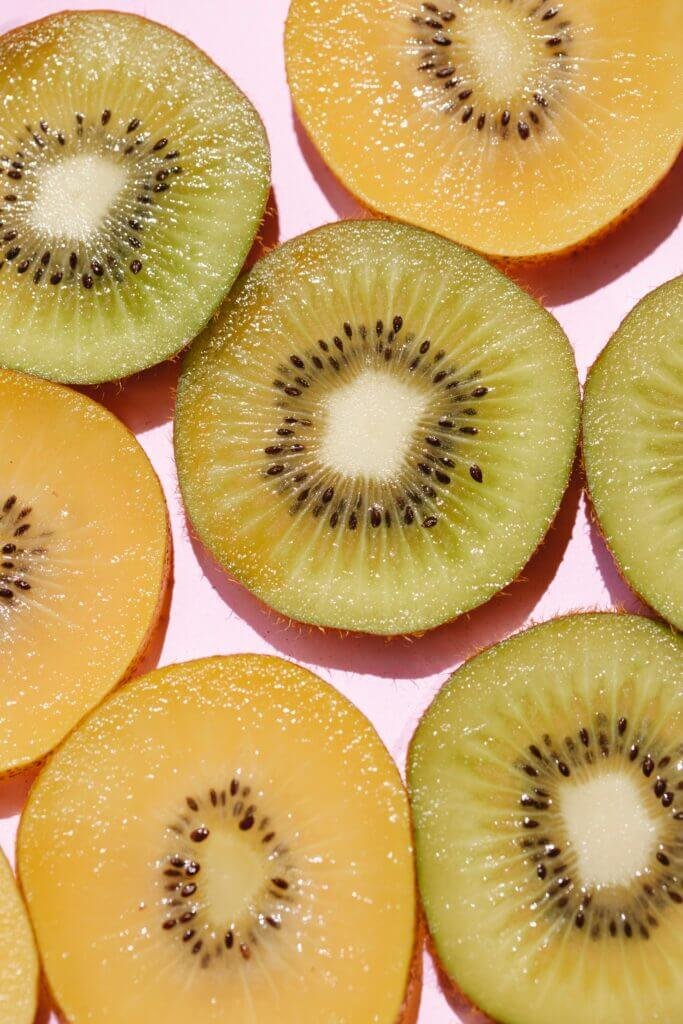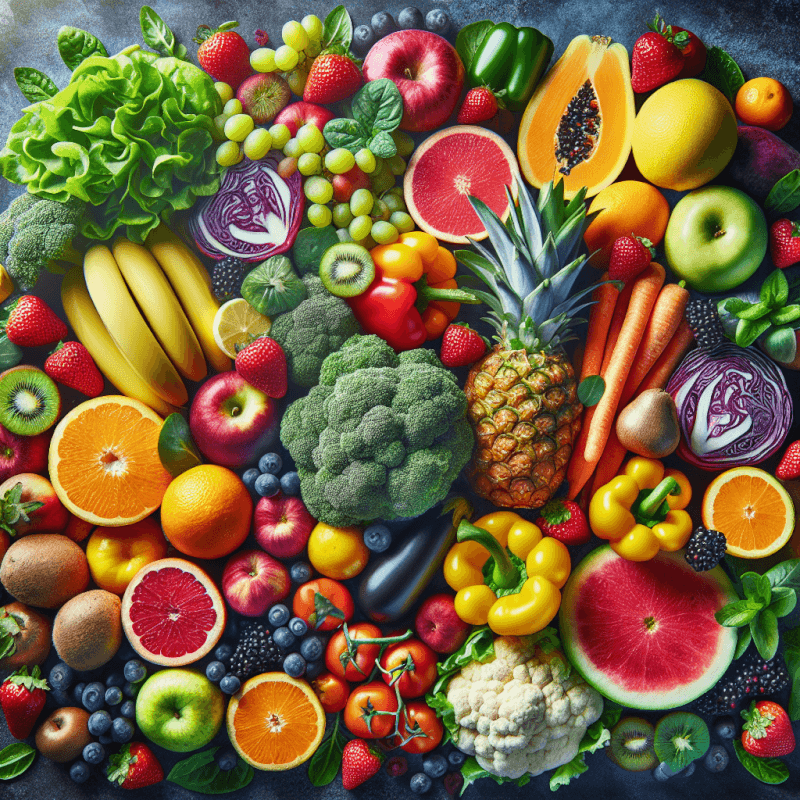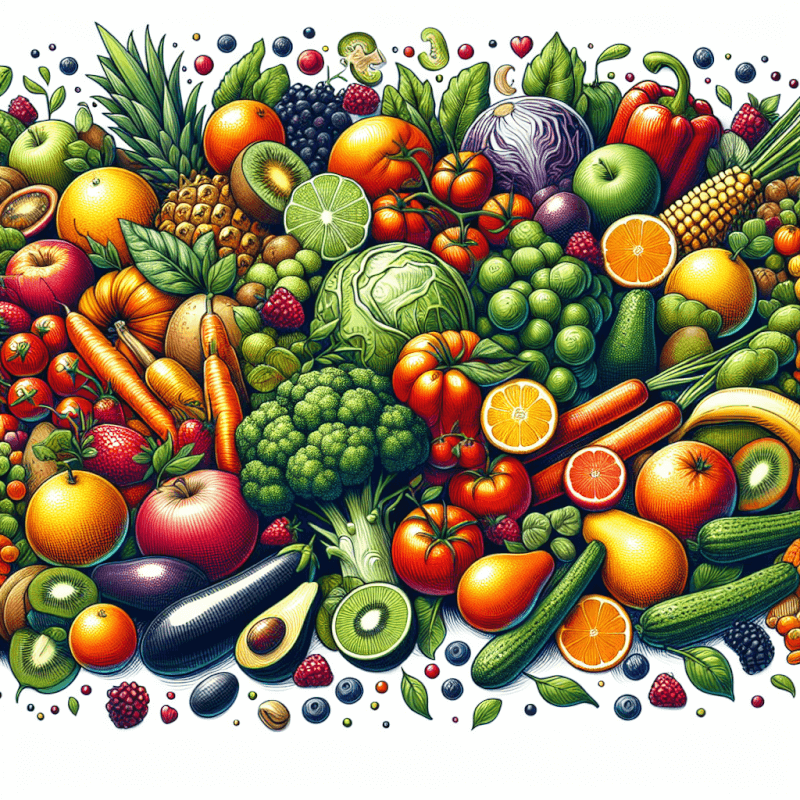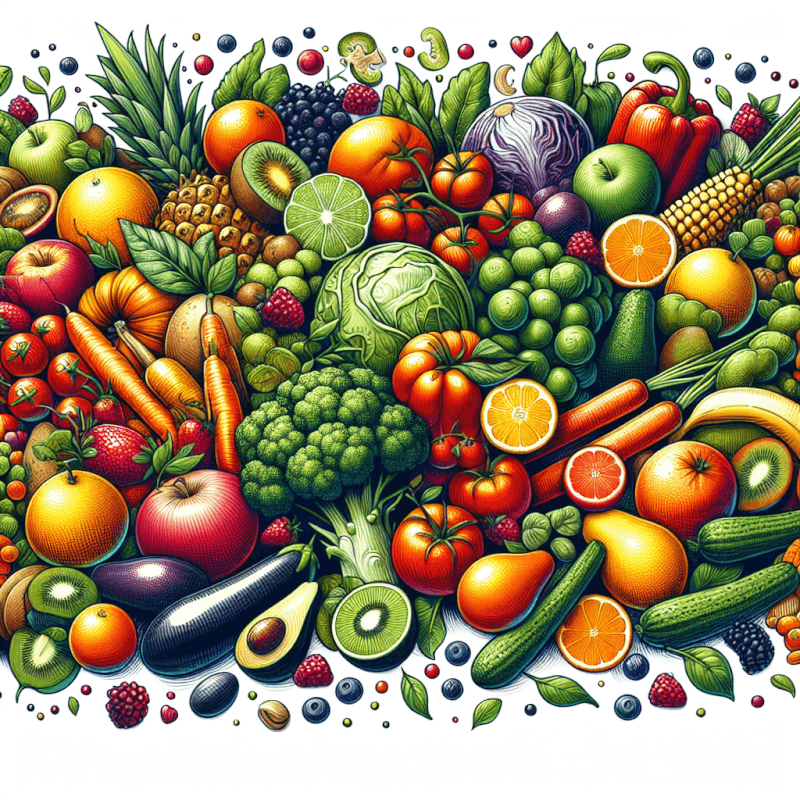Are you wondering how to make sure that you are getting all the essential vitamins and minerals your body needs? Well, look no further! In this article, we will explore some simple yet effective ways to ensure that your diet is filled with the necessary nutrients to keep you healthy and thriving. From incorporating a variety of fruits and vegetables to choosing fortified foods, you will discover practical tips that will help you maintain a well-rounded and nutrient-rich diet. So, let’s get started on the path to a healthier you!

Overview
Understanding the importance of vitamins and minerals
Taking care of your health is essential, and one way to do that is by ensuring that you have a balanced diet that includes sufficient vitamins and minerals. Vitamins and minerals play crucial roles in maintaining a healthy body and mind. They are necessary for various bodily functions, such as promoting growth, supporting the immune system, and aiding in the metabolism of macronutrients.
Evaluating Your Diet
Assessing your nutrient needs
To ensure that you are getting enough vitamins and minerals, it’s important to assess your nutrient needs. The recommended daily intake of vitamins and minerals varies depending on factors such as age, sex, and overall health. Consulting a healthcare professional or a registered dietitian can help determine your specific nutrient needs and guide you towards making informed dietary choices.
Identifying nutrient deficiencies
Identifying nutrient deficiencies is crucial to maintaining overall health. Some common signs of nutrient deficiencies include fatigue, weakened immune system, brittle nails, hair loss, and poor concentration. If you suspect that you may have a nutrient deficiency, it is essential to consult a healthcare professional for a proper diagnosis. Blood tests can help identify specific deficiencies and guide you towards appropriate dietary changes or supplementation.
Sources of Vitamins and Minerals
Exploring different food groups
A balanced diet includes a variety of foods from different food groups. Each food group offers a unique set of vitamins and minerals. By incorporating a diverse range of foods into your diet, you can ensure adequate intake of essential nutrients.
Fruits and vegetables are excellent sources of vitamins and minerals. Aim for a variety of colorful fruits and vegetables to maximize nutrient intake. Whole grains, such as quinoa and brown rice, provide essential B vitamins and minerals like iron and magnesium. Lean proteins, such as poultry, fish, and legumes, are rich in minerals like zinc and iron. Dairy products, such as milk and yogurt, are excellent sources of calcium.
Highlighting nutrient-rich foods
Certain foods stand out for their high nutrient content. Dark leafy greens like spinach and kale are packed with vitamins A, C, and K, as well as minerals like iron and calcium. Citrus fruits like oranges and grapefruits are rich in vitamin C. Nuts and seeds, such as almonds and sunflower seeds, provide a good source of vitamin E and minerals like magnesium and zinc. Fish, such as salmon and tuna, contain omega-3 fatty acids, which are essential for brain health.
Balancing Your Diet
Creating a well-rounded meal plan
Creating a well-rounded meal plan is essential to ensure that you are getting all the necessary vitamins and minerals. Include a variety of foods from different food groups in each meal. Aim for a balance of carbohydrates, proteins, and fats. Incorporate fruits and vegetables into every meal and consider adding whole grains for added fiber and nutrients.
Considering dietary restrictions
If you have dietary restrictions or follow a specific eating plan, it’s important to find alternative sources for the nutrients that may be limited. For example, if you follow a vegetarian or vegan diet, you may need to find plant-based sources of iron and vitamin B12. If you have dairy intolerance, you can opt for non-dairy alternatives fortified with calcium and vitamin D. Consulting a registered dietitian can help you navigate these dietary restrictions and ensure adequate nutrient intake.

Supplementation
Understanding when supplementation is necessary
In some cases, meeting all your nutrient needs solely through diet may be challenging. For example, certain medical conditions or specific dietary restrictions may make it difficult to consume enough of certain vitamins and minerals. In such cases, dietary supplements can be helpful. However, always consult your healthcare professional before starting any supplementation regimen to ensure proper dosage and compatibility with any medications you may be taking.
Choosing the right supplements
When choosing supplements, it’s important to opt for high-quality products from reputable brands. Look for supplements that have been independently tested for safety and efficacy. It’s also important to select supplements that provide the specific vitamins and minerals you may be deficient in. Avoid exceeding the recommended daily intake for any nutrient unless advised by a healthcare professional.
Cooking and Food Preparation Tips
Preserving nutrient content in cooking
Cooking methods can affect the nutrient content of foods. To preserve the vitamins and minerals in your meals, opt for cooking methods such as steaming, roasting, or stir-frying. These methods retain more nutrients compared to boiling or deep-frying. Avoid overcooking vegetables as prolonged heat exposure can cause nutrient loss.
Maximizing nutrient absorption
Certain nutrients are better absorbed when consumed with certain foods. For example, pairing foods rich in vitamin C with iron-rich foods can enhance the absorption of iron. Including healthy fats like avocado or olive oil can help with the absorption of fat-soluble vitamins like vitamin E and vitamin D. It’s also important to chew your food thoroughly to aid in proper digestion and nutrient absorption.

Food Combinations for Enhancing Nutrient Absorption
Pairing certain foods for better nutrient utilization
Some food combinations can enhance the utilization of nutrients in your body. For example, consuming spinach or other leafy greens with a source of vitamin C, like citrus fruits or bell peppers, can increase the absorption of iron present in the greens. Eating tomatoes with healthy fats, such as avocado or olive oil, can enhance the absorption of lycopene, a potent antioxidant found in tomatoes.
Exploring synergistic food combinations
In addition to specific pairings, some foods have a synergistic effect when consumed together. For example, the combination of legumes and whole grains creates a complete protein source, suitable for vegetarians and vegans. Combining rice and beans or whole-grain bread with nut butter provides a balanced amino acid profile. Exploring these synergistic food combinations can ensure optimal nutrient intake.
Avoiding Common Pitfalls
Steering clear of processed foods
Processed foods often lack the same nutrient density as whole, unprocessed foods. They can be high in added sugars, unhealthy fats, and sodium while being low in essential vitamins and minerals. Opting for whole foods, such as fresh fruits, vegetables, lean proteins, and whole grains, can help you avoid nutrient-poor processed foods.
Limiting nutrient-depleting habits
Certain habits can deplete the nutrients in your body. For example, excessive alcohol consumption can interfere with nutrient absorption and deplete essential vitamins like B vitamins and vitamin C. Smoking can also negatively impact nutrient absorption and increase the body’s need for certain vitamins. Prioritizing a healthy lifestyle that includes moderation in alcohol consumption and avoiding smoking can help preserve nutrient levels.

Special Considerations for Specific Nutrients
Meeting calcium requirements
Calcium is vital for maintaining strong bones and teeth. Dairy products, such as milk, cheese, and yogurt, are excellent sources of calcium. If you follow a dairy-free diet, you can opt for non-dairy alternatives fortified with calcium, such as almond milk or tofu. Leafy greens, like kale and broccoli, also provide a good amount of calcium. It’s important to ensure that you are meeting the recommended daily intake of calcium, especially as you age, to prevent conditions like osteoporosis.
Ensuring adequate iron intake
Iron is necessary for oxygen transport in the body and preventing iron deficiency anemia. Red meat is a rich source of heme iron, which is highly absorbable. If you follow a plant-based diet, you can obtain iron from sources like legumes, tofu, and iron-fortified cereals. To enhance iron absorption, pair iron-rich foods with vitamin C-rich foods, such as citrus fruits or bell peppers. Avoid consuming tea or coffee with iron-rich meals as they can inhibit iron absorption.
Understanding vitamin D synthesis
Vitamin D is unique as it can be synthesized by the body when the skin is exposed to sunlight. However, depending on factors such as geographic location, season, and skin pigmentation, it may be challenging to produce adequate vitamin D solely through sunlight exposure. Foods fortified with vitamin D, such as fortified dairy products and plant-based alternatives, can help meet your vitamin D needs. Consult your healthcare professional to determine if vitamin D supplementation is necessary, especially if you have limited sunlight exposure.
Conclusion
Making conscious choices for optimal nutrition
Ensuring that you are getting enough vitamins and minerals in your diet is crucial for maintaining overall health and wellbeing. By understanding the importance of these nutrients, evaluating your diet, and incorporating nutrient-rich foods into your meals, you can make conscious choices to optimize your nutrition. Consider consulting a healthcare professional or registered dietitian to develop a personalized plan that meets your specific nutrient needs. Remember, small changes in your dietary habits can have a significant impact on your overall health and vitality.



